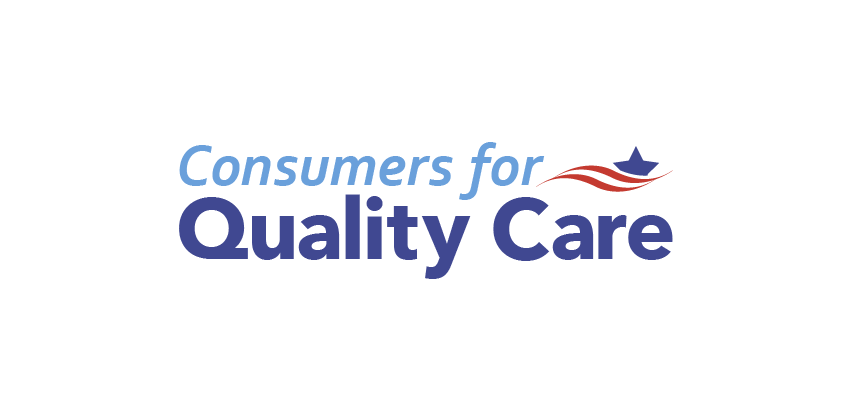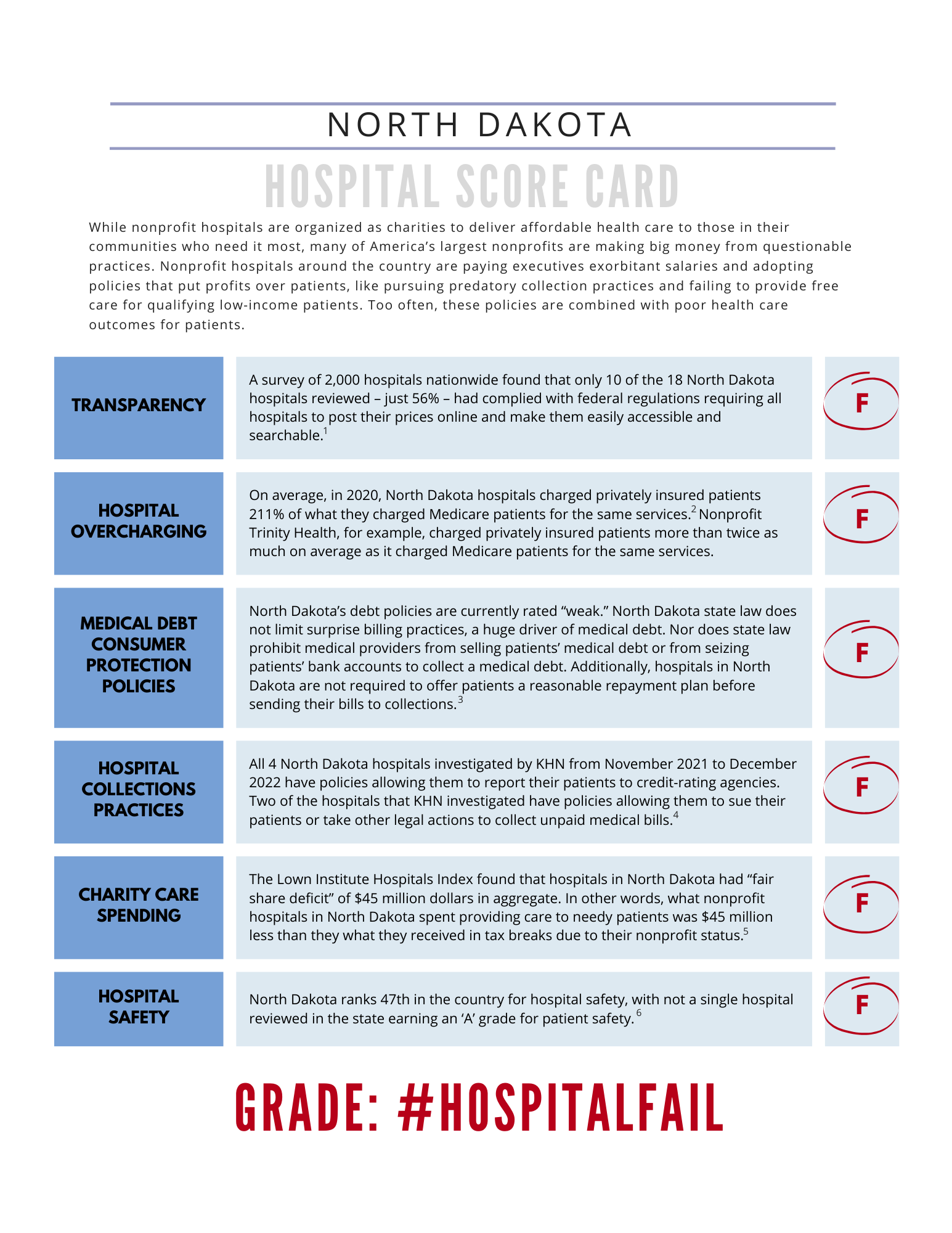CQC Nonprofit Hospital Scorecard: North Dakota Nonprofit Hospitals Earn a #HospitalFail
By Consumers for Quality Care, on January 9, 2024

FOR IMMEDIATE RELEASE
January 9, 2024
Contact: Press@Consumers4QualityCare.org
CQC Nonprofit Hospital Scorecard: North Dakota Nonprofit Hospitals Earn a #HospitalFail
WASHINGTON, D.C. – Despite being tax-exempt, nonprofit hospitals across the country are making big money at the expense of their patients. The North Dakota Hospital Scorecard was created based on recent findings from the Lown Institute, PatientsRightsAdvocate.org, and others that uncovered troubling practices at hospitals in North Dakota. These practices are at odds with what the public expects from charitable organizations, especially since North Dakota nonprofit hospitals receive hundreds of millions of dollars in tax breaks each year.
In response to these troubling findings, Consumers for Quality Care (CQC) released the following statement:
“Nonprofit hospitals in North Dakota are putting their own financial gain ahead of their patients’ well-being. This is despite the fact that these hospitals are charitable organizations that pocket collectively tens of millions of dollars in tax breaks each year. These nonprofit hospitals are charging huge mark-ups for care, leaving patients with mountains of medical debt, and the law in North Dakota affords few protections to patients faced with aggressive debt collection tactics. This cannot be allowed to continue. Nonprofit hospitals should be made to put patients first, before their bottom lines. When they fail to do so, they should be held accountable.”
Visit CQC’s Nonprofit Hospital Scorecards here.

ABOUT
Consumers for Quality Care (CQC) is a coalition of advocates and former policymakers working to provide a voice for patients in the health care debate as they demand better care. CQC is led by a board of directors that includes the Honorable Donna Christensen, physician and former Member of Congress; Jim Manley, former senior advisor to Senators Edward Kennedy and Harry Reid; Jason Resendez, community advocate and health care strategist; and Mary L. Smith, former CEO of the Indian Health Service.
###
